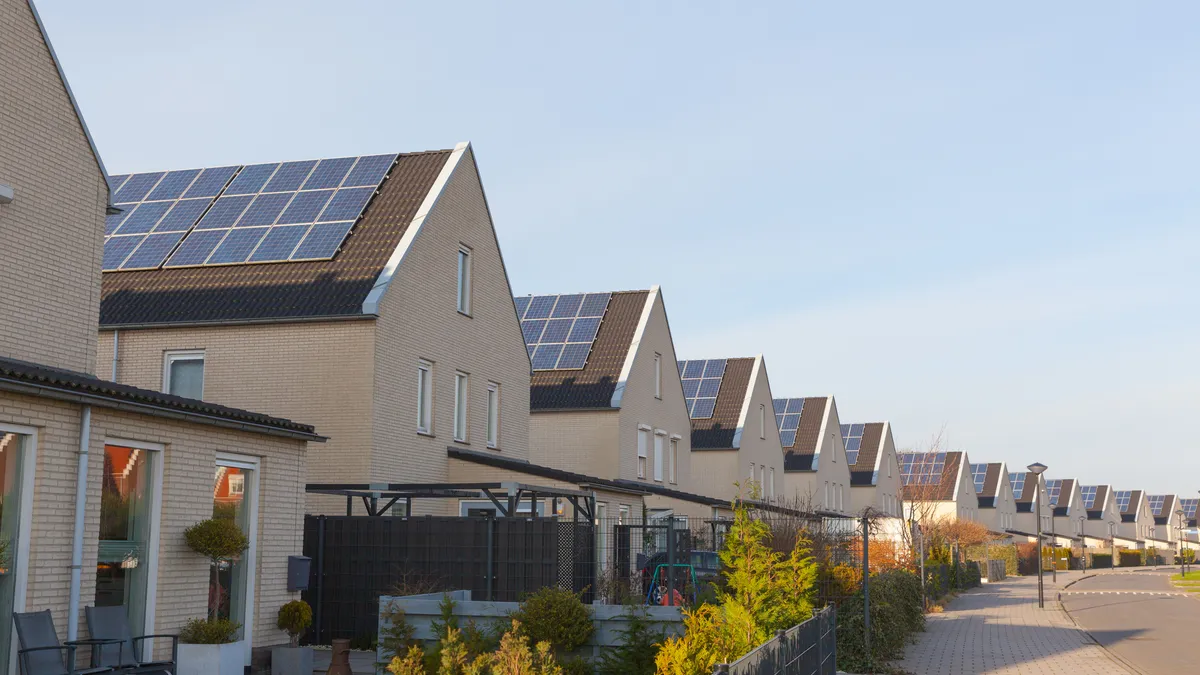Dive Brief:
-
A solar and storage facility at housing complex in Australia is using blockchain technology to allow residents to trade energy among themselves, as part of a government-funded sustainable living project.
-
Yolk Property Group has teamed up with Power Ledger to offer residents of its Evermore apartments, based in Western Australia, the ability to buy and sell energy generated by the solar panels or stored in batteries at the complex. The developers estimate that the 53.6 kW solar system with 150 kW of battery storage will produce about 80% of the apartments' power, saving residents 30% on electricity bills and insulating them from volatile energy prices.
-
The partners say this will be the country's first apartment development for sale to the public that will utilize blockchain technology for solar power trading between residents.
Dive Insight:
Keeping track of the energy generated and consumed by solar panels and batteries could be an accounting nightmare. Blockchain technology makes trading small amounts of power fast and efficient.
Blockchain is the technology behind Bitcoin, but it is not synonymous with the cryptocurrency. Blockchain is a digital ledger that can store and transfer data securely because the "blocks" of data cannot be altered. A variety of industries, from banking to energy, are exploring the use of blockchain to keep track of transactions quickly, securely and cheaply.
A project in Brooklyn, N.Y., is using blockchain on a series of solar panels it is installing as part of its Brooklyn Microgrid project. The technology will allow residents of the solar-powered buildings to buy and sell power among themselves. For instance, a resident who has too much solar-generated power can sell it to another. Earlier this year, Siemens invested in LO3, the developer of the Brooklyn Microgrid project.
The apartment complex in Western Australia is pursuing that same concept and tacking on a storage component.
"Power Ledger's blockchain technology, paired with the other power-saving initiatives at Evermore, gives residents exceptional control over their power usage and power costs, with residents only paying for the energy they need and onselling excess energy to neighbours, always taking advantage of discounted rates," Tao Bourton, director of Yolk Property Group, said in a statement.
The 24-unit housing complex will also include an electric vehicle charging point, communal bicycles, a bicycle repair station and a system to divert an expected 60% of the complex's waste from landfill.













